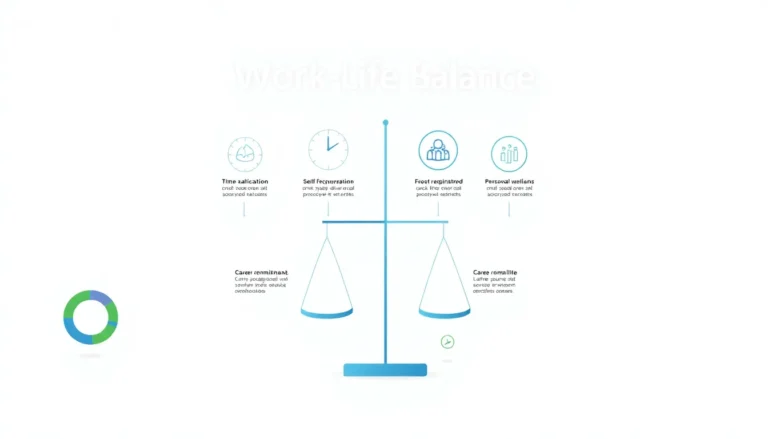Table of Contents
ToggleLearning Portuguese might just be the best decision you ever make—next to adopting a pet llama, of course. With over 250 million speakers worldwide, this beautiful language opens doors to vibrant cultures, delicious cuisines, and unforgettable adventures. Whether it’s the rhythmic beats of samba or the rich history of Fado, mastering Portuguese lets you dive deep into experiences that’ll make your friends green with envy.
Overview of Portuguese Language Learning
Learning Portuguese opens doors to a vibrant world. With over 250 million speakers worldwide, proficiency in Portuguese enhances connectivity across continents. Enthusiasm grows as learners discover diverse cultures, from Brazil’s Carnival to Portugal’s rich history.
Resources for mastering Portuguese abound. Language classes, online courses, and immersive programs provide structured learning. Books and apps like Duolingo or Babbel aid in vocabulary and grammar acquisition. Engaging with native speakers through language exchange platforms encourages practical communication skills.
Practice plays a crucial role in fluency. Speaking with natives accelerates comprehension and pronunciation. Listening to music or watching films in Portuguese also enhances language immersion. Daily practice fosters confidence and reinforces language retention.
Understanding cultural context is essential. Familiarity with Portuguese traditions enriches conversations and cultural appreciation. Festivals, cuisines, and even idiomatic expressions provide a deeper connection to the language. Exploring history and geography broadens perspectives, making conversations more meaningful.
Setting realistic goals promotes consistent progression. Beginners might focus on basic conversational skills. Advanced learners can delve into literature or academic texts. Tracking progress demonstrates improvement and motivates further study.
Incorporating diverse learning methods maximizes effectiveness. Group studies or tutor sessions create interactive environments. Engaging in immersive experiences, such as travel or cultural events, strengthens language comprehension. Building a routine that combines various resources ensures steady improvement.
Choosing to learn Portuguese invites a journey filled with experiences. Gaining command of the language not only facilitates communication but also cultivates appreciation for rich cultural tapestries. Grasping Portuguese enhances personal and professional opportunities in an increasingly globalized world.
Benefits of Learning Portuguese

Learning Portuguese can enhance personal connections across cultures while providing a gateway to rich cultural experiences.
Cultural Insights
Understanding Portuguese opens access to vibrant cultural traditions. It facilitates appreciation of culinary delights, music, and art unique to Portuguese-speaking countries. For instance, Fado music deeply reflects the soul of Portuguese culture, offering emotional and historical narratives. Engaging with local festivals and customs becomes easier as language skills improve. Movies in Portuguese reveal unique storytelling styles and societal themes, enriching cultural exposure. Knowledge of the language also fosters deeper discussions about literature and regional histories. Through language mastery, individuals can form authentic relationships with native speakers, creating lasting friendships and shared experiences.
Career Opportunities
Demands for Portuguese speakers continue to rise in global markets. Various industries, such as tourism, international business, and translation services, actively seek individuals fluent in Portuguese. Companies expanding in Brazil, Portugal, and African nations prioritize candidates with language skills. Communication with Portuguese-speaking clients enhances client relationships, boosting professional growth. Multinational companies value bilingual employees who can bridge gaps between cultures. Opportunities for advancement often arise for those proficient in both English and Portuguese, creating competitive advantages. As economies grow in Portuguese-speaking regions, job prospects expand, providing diverse career paths for learners.
Different Approaches to Learning
Various approaches exist for learning Portuguese, each offering unique benefits. Selecting the right method depends on personal preferences and learning styles.
Traditional Classroom Methods
Traditional classroom methods provide structured environments. Students benefit from direct interactions with instructors and peers. In-class activities often include speaking exercises and group discussions. This social aspect enhances motivation and engagement. Many learners appreciate the discipline of scheduled classes, which promotes consistency. Research indicates that structured learning leads to quicker mastery of complex languages like Portuguese.
Online Learning Platforms
Online learning platforms cater to a wide range of learners. Programs like Duolingo and Babbel offer flexibility for busy schedules. Interactive exercises and gamified learning experiences keep users engaged. Additionally, users can track progress over time, allowing for goal setting and motivation. These platforms often include cultural insights, enriching the learning experience. Studies show that self-paced online learning can be just as effective as traditional methods when appropriately utilized.
Language Exchange Programs
Language exchange programs connect learners with native speakers. Platforms like Tandem or HelloTalk foster genuine conversational practice. Participants often gain practical vocabulary and cultural nuances not found in textbooks. Many consider language exchange a fun way to practice listening and speaking skills. This immersive experience enhances fluency and builds confidence. Successful exchanges lead to lasting friendships and deeper cultural understanding, making them a valuable tool for language learning.
Tips for Effective Portuguese Language Learning
Effective Portuguese language learning combines various strategies to enhance mastery. Implementing these tips facilitates progress and boosts motivation.
Setting Realistic Goals
Establishing realistic goals plays a crucial role in language acquisition. Break larger objectives into smaller, manageable tasks, such as mastering basic vocabulary or completing specific grammar lessons. Setting deadlines for these tasks helps maintain focus and accountability. Consistency is key; daily practice in short sessions often leads to better retention. Adjusting goals based on progress fosters a sense of achievement and encourages ongoing learning. Regularly evaluating one’s development and celebrating milestones keeps enthusiasm high.
Using Language Apps
Language apps offer flexible and engaging options for Portuguese learners. Duolingo and Babbel provide structured lessons with varied activities to reinforce learning. Incorporating these tools into daily routines can make practice more enjoyable. Schedule sessions for specific skills, like vocabulary or listening comprehension, to ensure balanced development. Many apps also allow tracking progress, motivating learners to stay committed. Participating in quizzes and challenges adds a competitive element, further enhancing engagement. Overall, language apps serve as valuable resources for consistent practice and improvement.
Challenges in Portuguese Language Learning
Learning Portuguese presents several challenges. These challenges can stem from unique linguistic features that differ from learners’ native languages.
Pronunciation Issues
Pronunciation poses a significant hurdle. Portuguese has sounds not found in English, such as nasal vowels. Native speakers often pronounce words with melody and rhythm, making it tricky to replicate. The distinction between ‘e’ and ‘o’ sounds can confuse new learners. Intonation patterns differ, so listening closely to native speakers is essential. Practicing through dialogues or music enhances pronunciation skills. Engaging with audio resources reinforces this learning, as repetition helps with retention. Correct pronunciation not only boosts confidence but also improves overall communication.
Grammatical Complexities
Grammatical complexities challenge many Portuguese learners. Gendered nouns require understanding that words can be masculine or feminine. This requires learners to memorize articles, as they change based on gender. Verb conjugation introduces further intricacies. With numerous tenses and moods, mastering these forms can be overwhelming for beginners. Adjectives also alter based on the noun, adding complexity. Focusing on patterns in conjugation helps simplify learning. Studying grammar through context in sentences enhances understanding. Regular practice with these rules fosters fluency and strengthens language foundation.
Learning Portuguese is a rewarding journey that opens up a world of opportunities. With its rich cultural heritage and growing global demand, mastering this language enhances personal connections and professional prospects.
By embracing various learning methods and engaging with native speakers, learners can navigate the complexities of Portuguese while enjoying the process. The insights gained from understanding the language extend beyond words, enriching experiences and fostering appreciation for diverse cultures.
As individuals embark on this linguistic adventure, they’ll find that each step taken brings them closer to fluency and a deeper connection to the vibrant Portuguese-speaking world.







